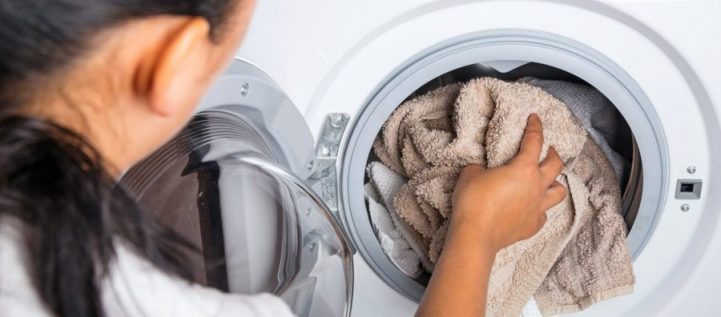Kitchen countertops see a lot of action daily, from food prep to holding appliances, which makes them a hotspot for grime and bacteria buildup. Whether you’re in a modern Sydney apartment with engineered stone counters or a more traditional home with granite or laminate surfaces, this guide will walk you through a simple, effective routine to keep them spotless.
Here’s everything you need to know to make your countertops look brand new, no matter their type!
If you’re searching for a complete approach to house cleaning, read the article House Cleaning Guide.
Steps to Clean Your Kitchen Countertops
1. Gather Your Supplies
Before you dive into cleaning, gather these essential supplies to make the process smooth and efficient:
- Cleaning Supplies:
- Mild dish soap
- Baking soda
- Isopropyl alcohol (70%) for disinfecting
- Microfiber cloths or soft sponges
- Spray bottle
- pH-neutral stone cleaner (specifically for granite and marble)
- Extras:
- Cutting boards and trivets (to protect your counters from scratches and heat in the future)
2. Clear the Countertop
Remove all items from your countertop. This includes small appliances, food items, and utensils. Starting with a clean, open space allows you to reach every corner and remove any crumbs or debris that may have gathered.
3. Dust and Wipe Away Debris
Use a dry microfiber cloth to gently dust the surface, removing loose crumbs, dust, or other debris. This step helps prevent scratching when you start wet cleaning.
4. Prepare Your Cleaning Solution
A simple mixture of mild dish soap and warm water works perfectly fine, for most countertop surfaces. However, keep in mind the material of your countertop:
- Granite and Marble: These natural stones require pH-neutral cleaners. Acidic cleaners like vinegar or lemon juice can damage the surface, so stick with a stone-specific cleaner or a gentle soap solution.
- Laminate and Quartz (Engineered Stone): These materials are less delicate, so you can use mild dish soap and water without worry.
5. Wipe Down the Surface by Material
Each countertop type benefits from a slightly different approach to daily cleaning:
- Laminate: Soak a soft cloth or sponge in your soapy water mixture and wipe down the surface. Laminate is relatively low-maintenance, but it’s best to avoid abrasive scrubbers to prevent scratches.
- Granite and Marble: Use a soft cloth to apply a pH-neutral stone cleaner or your soapy solution. Rinse the cloth frequently to keep dirt from spreading.
- Engineered Stone (Quartz): These surfaces are durable and non-porous, so simply use the soap mixture and a soft cloth to wipe down.
6. Treat Stubborn Stains
Sometimes, basic cleaning isn’t enough to tackle tough stains. Here are a few quick fixes for common countertop stains:
- Coffee, Wine, or Juice Stains: Make a paste with baking soda and water, apply it to the stain, and let it sit for 5-10 minutes before wiping away.
- Grease Stains: Rub a small amount of rubbing alcohol onto a soft cloth and gently work it into the stained area to break down the grease.
7. Disinfect the Surface Safely
For a clean and germ-free surface, use diluted isopropyl alcohol to disinfect. Simply spray or dab it onto the countertop and wipe it down with a clean cloth. This method is safe and doesn’t use harsh chemicals that could damage certain surfaces.
8. Rinse and Dry
After cleaning, rinse the surface with fresh water if necessary to remove any soap residue, then dry it with a microfiber cloth. Drying prevents water spots and streaks, especially on dark-colored or glossy countertops.
9. Organize and Replace Items
Once the countertops are dry, replace all items on the surface, ensuring they’re organized and clean. A tidy countertop not only looks great but also makes daily cleanup easier.
Final Thoughts
Cleaning your countertops doesn’t need to be a time-consuming chore. With the right supplies and a few minutes of daily maintenance, you can keep them looking their best. To keep things eco-friendly, try using plant-based cleaners or a simple homemade mix of vinegar, water, and a few drops of essential oil. Just remember to avoid vinegar on natural stone!
Regular maintenance is also essential, especially for natural stone surfaces like granite and marble. These countertops should be sealed annually to prevent stains and etching, which also makes future cleaning easier by resisting grime and spills. Whenever you’re chopping or placing hot pots and pans, use cutting boards and trivets to protect the countertop from scratches and heat damage, preserving its lifespan.
With these tips, your kitchen countertops will stay hygienic, beautiful, and ready for your next culinary adventure!
